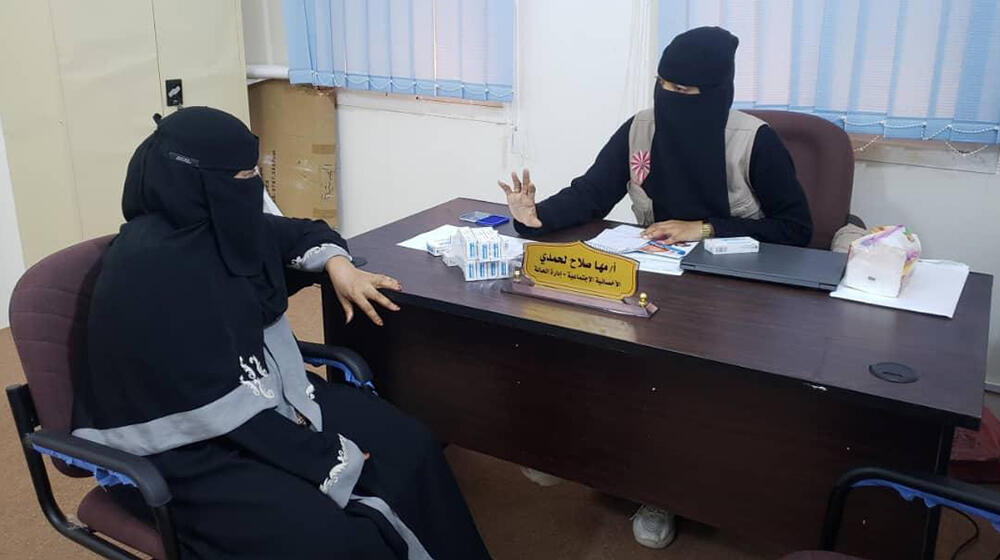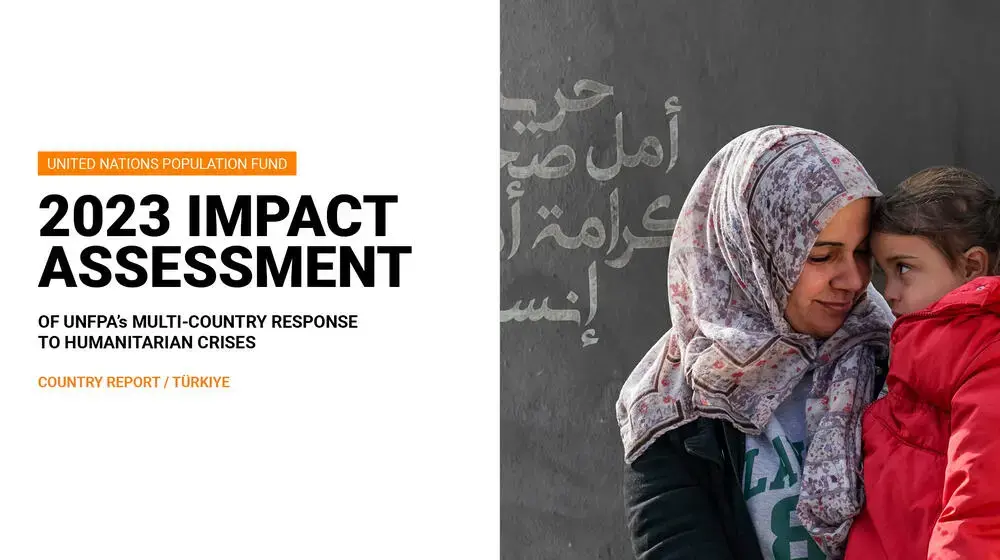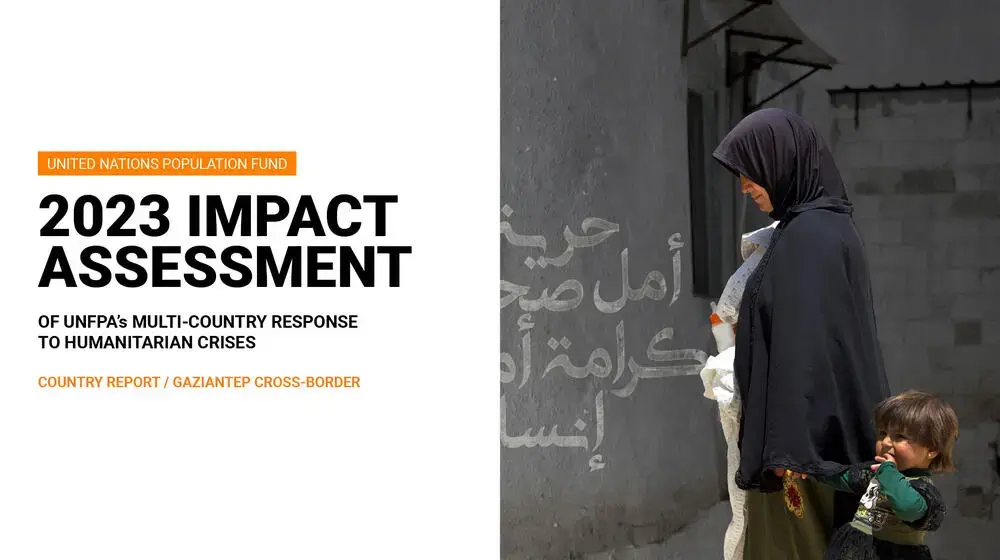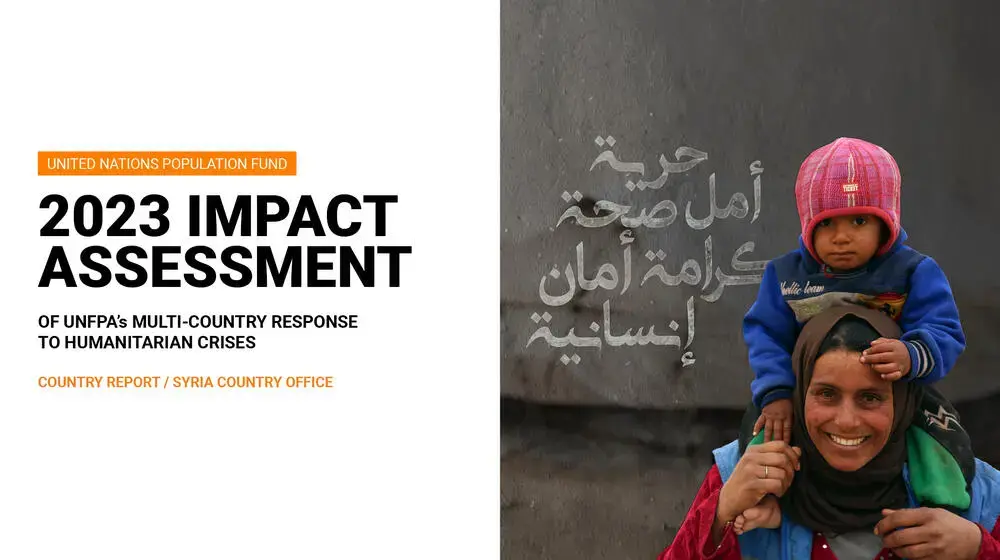HADRAMOUT GOVERNORATE, Yemen – “I lost my baby in front of my eyes,” said Safia*, a young woman from a remote village in Hadramout, Yemen.
Safia’s marriage had been arranged for her 21st birthday. One year later, she was pregnant. “The news brought a lot of joy,” she told UNFPA, the United Nations sexual and reproductive health agency. “We were very excited to become parents.”
New mothers and fathers the world over often receive advice, counsel and guidance – solicited or not – from family and community on navigating the highs and lows of parenthood. Unfortunately for Safia, this meant hearing from her mother-in-law two months before she delivered about the practice of female genital mutilation.
“My mother-in-law insisted it would allow my child to lead a moral life,” Safia said. But instead, the painful procedure stole her daughter away before her life could truly begin.
Three days after Safia had given birth, her mother-in-law visited with tools to perform female genital mutilation on the newborn. The child did not survive. “Her death not only killed my joy of being a mother, but killed me a thousand times over,” Safia said.
Millions at risk
Around the world, an estimated 200 million women and girls have been subjected to some form of female genital mutilation, a human rights violation that involves the removal of or injury to female genitalia for non-medical reasons.
Across Yemen, nearly one in five women and girls aged 15 to 49 were survivors of the practice in 2013, with the vast majority having undergone it within their first week of life. In Hadramout, where Safia lives, the prevalence rate of female genital mutilation for that year was 80 per cent.
A number of factors sustain this harmful practice, including the pressure to conform to deeply embedded cultural norms, a fear of ostracism for not doing so, and limited awareness of its harms. Many in Hadramout believe the procedure is required by religion, despite profuse evidence to the contrary. Often women who have been subject to female genital mutilation support continuing the tradition.
But Safia, a survivor of female genital mutilation herself, had had enough. When she again fell pregnant with a girl, she decided to work towards sparing her daughter from the damaging practice.
“I blamed myself for not doing anything to save my daughter, and began to question why she was killed in this brutal way for being a girl,” she said.
Community voices against violations
As Safia’s neighbours had avoided having their newborn daughter subject to female genital mutilation, Safia turned to them for advice. The mother told Safia that her husband and in-laws had been convinced to abandon the practice after visiting a UNFPA-supported youth-friendly service centre and hearing from staff there about the dangers of female genital mutilation.
According to a recent study across Yemen’s coastal regions – including Hadramout – almost two thirds of women and half of men lacked knowledge of the harm female genital mutilation can cause.
Safia’s husband urged his mother to attend the youth-friendly safe space with him and Safia. “The three of us listened for over three hours about the physical, mental and social consequences of female genital mutilation,” she said. “We became aware of how harmful it is and were fully convinced that it should not be practised.”
Through awareness-raising campaigns, UNFPA and UNICEF work on a joint programme to persuade and induce communities around the world to eliminate the practice. A recent campaign in Hadramout reached more than 400 people with information in eight days.
“I saved the life of my second daughter,” Safia said. “With this awareness, I believe I can help spare the lives of many innocent girls.”
*Name changed for privacy and protection





